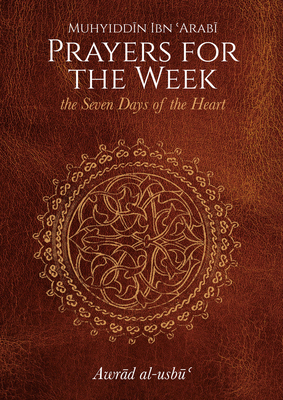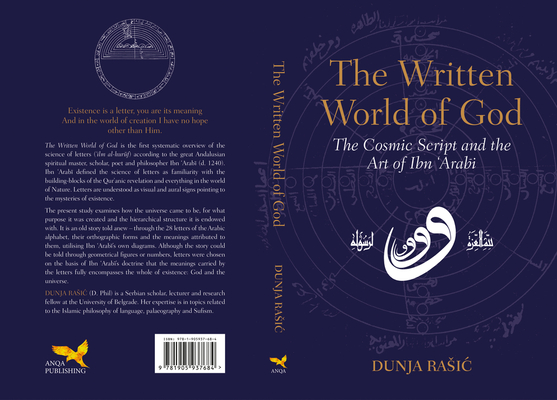


Dissolving into Being is an introduction to Sufi philosophy, a tradition based on the
teachings of Ibn 'Arabi (d.1240), Sufism's most influential master. His voluminous
writings offer a treasury of wisdom, yet their vintage and complexity can limit their
purview to experts. To help bridge the gap between specialized studies of Sufi
philosophy and a broader readership, Dissolving into Being offers a modern
commentary on key passages of Ibn 'Arabi's foremost work, The Gemstones of
Wisdom, drawing out its profound insights on the unity of life, the reality of love
and the mysterious nature of destiny, death and what follows. In the process of
doing so, the book explores key elements of the Islamic Sufi-tradition and offers
an overview of the Sufi path of spiritual transformation, all the while pointing to the
deep resonance of Sufi philosophy with other religions and philosophies.
Although such works are much more widely available for other (what we might call) mystical
philosophical traditions, there is little available on Sufi philosophy that is not
explicitly oriented towards a strictly academic readership.






Prayers for the Week is a very special collection of daily prayers by Ibn ʿArabi and is regarded as one of the most magnificent and beautiful in the Sufi tradition.
There are fourteen prayers, one for each night and day of the week, with an extra introductory prayer. They include an unparalleled depth of knowledge of Union (tawḥīd), and for the one who recites them, they are as much educational as devotional.
This book is an expanded and fully revised version of The Seven Days of the Heart, which was first published in 2000. Over the intervening years we have consulted a very large number of manuscript copies of the Awrād in libraries throughout the world, and compare different readings and lines of transmission. The result is that for the first time we are able to provide an Arabic edition, based on the oldest and best manuscripts available, as well as a full transliteration of the prayers for non-Arabic speakers, and an updated translation and notes, with an accompanying recitation recording. We also decided to reflect the generally accepted title of these prayers by changing the main title to Prayers for the Week

Dissolving into Being is an introduction to Sufi philosophy, a tradition based on the
teachings of Ibn 'Arabi (d.1240), Sufism's most influential master. His voluminous
writings offer a treasury of wisdom, yet their vintage and complexity can limit their
purview to experts. To help bridge the gap between specialized studies of Sufi
philosophy and a broader readership, Dissolving into Being offers a modern
commentary on key passages of Ibn 'Arabi's foremost work, The Gemstones of
Wisdom, drawing out its profound insights on the unity of life, the reality of love
and the mysterious nature of destiny, death and what follows. In the process of
doing so, the book explores key elements of the Islamic Sufi-tradition and offers
an overview of the Sufi path of spiritual transformation, all the while pointing to the
deep resonance of Sufi philosophy with other religions and philosophies.
Although such works are much more widely available for other (what we might call) mystical
philosophical traditions, there is little available on Sufi philosophy that is not
explicitly oriented towards a strictly academic readership.



The Written World of God is the first and only systematic overview of the science of letters (ʿilm al-hurūf) according to the great Andalusian spiritual master, scholar, poet and philosopher Ibn ʿArabī (d. 1240). Ibn ʿArabī defined the science of letters as familiarity with the building-blocks of the Qur'anic revelation and everything in the world of Nature. Letters are understood as visual and aural signs pointing to the mysteries of existence.
The present study examines how the universe came to be, for what purpose it was created and the hierarchical structure it is endowed with. It is an old story told anew - through the 28 letters of the Arabic alphabet, their orthographic forms and the meanings attributed to them, utilising Ibn ʿArabī's own diagrams. Although the story could be told through geometrical figures or numbers, letters were chosen on the basis of Ibn ʿArabī's doctrine that the meanings carried by the letters fully encompasses the whole of existence: God and the universe.
This book will appeal to anyone interested in Sufism and the sacred language of Arabic as well as those familiar with the work of 'the greatest master' Ibn ʿArabī.


A major work of mystical literature, this account focuses on 14 visions in the form of dramatic conversations with the divine, interspersed with dazzling visionary episodes regarding the nature of existence, humans' relationship with reality, and the way to achieve true happiness. The introduction presents a resume of Ibn 'Arabi's life and examines in detail the style and symbolism of the contemplations. Presented for the first time in English, this work is a superb example of Ibn 'Arabi's inimitable style and deep perception.





Ibn 'Arabi is one of the greatest writers of mystical literature of any era. The voyages recounted in the enigmatic Secrets of Voyaging offer readers an inexhaustible source of reflection on the nature of the journeys of life. This unique book explores the theme of voyage and spiritual unveiling as it plays out simultaneously in the cosmological, scriptural, and mystical domains. This first English translation includes the Arabic text, based on a manuscript in Ibn 'Arabi's own hand and is accompanied by the translator's introduction and extensive notes and commentary.

